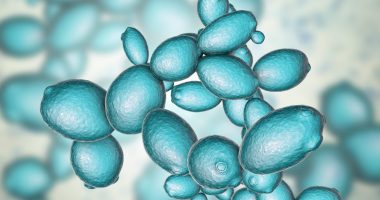- Following market speculation in January, Biotron (BIT) has emerged as a potential runner in the race to find the coronavirus cure
- The Biotech specialist said it has 30 antivirus compounds which show potential in their ability to treat the virus
- These compounds have been shown to reduce the levels of coronavirus by between 90 and 100 per cent in infected cell cultures
- The company says its scientists were the first worldwide to publish important antiviral data for the current iteration of the coronavirus
- Shares in the company are currently trading almost 16 per cent up, worth 9.5 cents each
Small-cap biotech specialist Biotron (BIT) had emerged as an unlikely candidate in the race to find the coronavirus cure.
The news comes as investors continue to keep a watchful eye on the ASX healthcare sector, causing the share price of large caps like CSL to rise as the coronavirus spreads. Today, however, Biotron told investors it is testing several of its “promising compounds” for activity against the global virus.
Biotron became part of the ASX coronavirus story in January after shrewd investors noticed a U.S. patent for which Biotron applied in December 2019 — a patent which specifically named the coronavirus in its list of potentially treatable diseases for Biotron’s antiviral compounds.
At the time, Biotron had made no announcement to shareholders regarding the disease. Further, the patent application was filed before the first outbreak of the current iteration of the coronavirus was reported to the World Health Organisation.
While shareholders waited with bated breath, Biotron stayed quiet. Until today.
In the announcement to shareholders this morning, Biotron said it has myriad potential compound candidates for use against the coronavirus.
“Within its proprietary small molecule compound library Biotron has over 30 compounds with good activity against a range of coronaviruses, including human coronaviruses that cause mild, cold-like symptoms as well as the SARS coronavirus that was responsible for the outbreak of that virus in 2003.”
Biotron, February 2020
These compounds, according to Biotron, can reduce the levels of coronavirus by between 90 and 100 per cent in infected cell cultures. Moreover, the company said several compounds have broad-spectrum activity against more than one strain of coronavirus.
Biotron said it is specifically focussing on the new 2019-nCoV coronavirus, which has now spread to almost 28,000 people across 28 countries and taken 563 lives.
The company specialises in developing drugs that target virus-encoded proteins called viroporins.
“The company’s scientists were the first to identify and publish data showing that the E protein of the coronavirus is viroporin and a good target for antiviral drugs,” Biotron’s announcement this morning said.
Biotron has gained 15.85 per cent following today’s announcement. Shares are currently worth 95 cents each — up 90 per cent from the start of the year. Biotron has a $65.98 million market cap.








